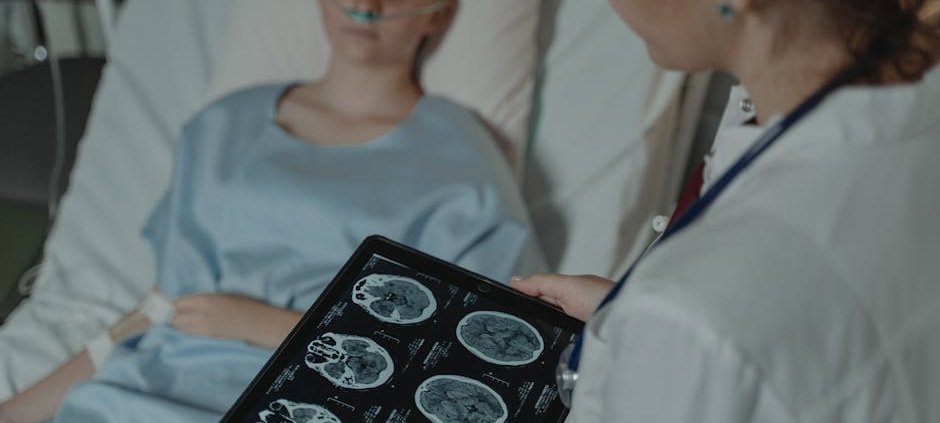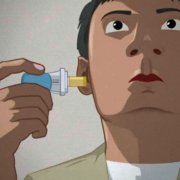How is Ketamine Administered for Depression: 3 Best Ways
How is ketamine administered for depression has become a pressing question as more individuals seek effective solutions for mental health challenges. In recent years, depression rates have surged, affecting millions across the globe. This rise underscores the urgent need for innovative treatments, especially for those who haven’t found relief with traditional methods. Two commonly used methods for administering ketamine are intravenous infusion and intranasal spray, offering hope through their rapid-acting effects.
Depression’s growing prevalence has placed a spotlight on new and alternative therapies, with ketamine emerging as a promising option. Unlike conventional antidepressants that focus primarily on serotonin, ketamine influences different brain chemicals, specifically glutamate, offering a novel pathway for alleviating symptoms. Developed initially as an anesthetic, ketamine has shown remarkable potential in quickly easing depressive symptoms, particularly for individuals with treatment-resistant depression.
In clinical settings, ketamine is administered through various methods, with intravenous infusion and intranasal spray being the most common. These approaches enable precise control over dosage and have been recognized for their fast-acting nature, often providing relief within hours. As research continues, ketamine therapy offers an innovative opportunity for those seeking immediate and effective depression treatment.

How is Ketamine Administered for Depression?
Ketamine administration for depression can be done through three main methods: intravenous infusion, intranasal spray, and intramuscular injection. Each method has unique characteristics and benefits, making them suitable for different patient needs.
Intravenous Infusion
Intravenous (IV) infusion is one of the most common ways to administer ketamine for depression. This method involves delivering ketamine directly into the bloodstream through an IV drip, allowing for precise control over the dosage. A typical session lasts around 40 minutes, during which patients are closely monitored by healthcare professionals. The rapid effects of IV infusion are a significant advantage, often providing relief from depressive symptoms within hours.

Intranasal Spray
Another method is the intranasal spray, which involves using a nasal spray to administer a derivative of ketamine called esketamine. This form is FDA-approved for treatment-resistant depression and offers a less invasive alternative to IV infusion. Patients can self-administer the nasal spray under medical supervision, making it a convenient option for those uncomfortable with needles. The absorption rate is lower compared to IV infusion, but the ease of use and FDA approval make it a popular choice.

Intramuscular Injection
The third method is intramuscular injection, where ketamine is injected directly into the arm muscle. This approach has an absorption rate of about 93%, slightly lower than IV infusion but higher than nasal spray. While intramuscular injections offer less control over dosage adjustments during a session, they are still effective for many patients. The dosage can be custom in subsequent sessions based on the patient’s response and any side effects experienced.

Each of these methods provides a different route to deliver ketamine’s fast-acting antidepressant effects. The choice of method depends on various factors, including patient preference, medical history, and the specific symptoms being treated.
Mechanism of Action
Understanding how ketamine works in the brain helps explain its effectiveness in treating depression. The key players here are neurotransmitters, synapse regrowth, and glutamate receptors.
Neurotransmitters: Glutamate’s Role
Ketamine’s antidepressant effects primarily involve the neurotransmitter glutamate. Unlike traditional antidepressants that focus on serotonin, ketamine improves glutamate activity. Glutamate is crucial for mood regulation and cognitive functions. In people with depression, glutamate receptors may not function properly, which can lead to mood disturbances.
Ketamine helps by activating these glutamate receptors, which can then boost communication between brain cells. This process is akin to giving worn-out tools a new lease on life, allowing them to work efficiently again.
Synapse Regrowth: Rebuilding Connections
One of the standout features of ketamine is its ability to promote synapse regrowth. Synapses are the connections between neurons, and they play a critical role in how brain cells communicate. In depression, these connections can weaken or diminish.
Research shows that ketamine can rapidly encourage the regrowth of synapses. Dr. John Krystal from Yale School of Medicine explains that within just 24 hours of treatment, patients can start to see these vital connections being rebuilt. This regrowth helps restore the brain’s ability to communicate effectively, which is essential for improving mood and cognitive function.
Opening a Window for Change
Ketamine may also create a “critical period” of brain plasticity, as noted by Dr. Gerard Sanacora from the Yale Depression Research Center. During this time, the brain becomes more adaptable and responsive to new experiences or therapies, such as cognitive behavioral therapy (CBT). This adaptability can make it easier for patients to shift out of depression and adopt healthier thought patterns.
In summary, ketamine’s unique action on glutamate receptors and its ability to regrow synapses provide a powerful mechanism for treating depression. By enhancing brain communication and creating a window for change, ketamine offers hope for those who haven’t found relief with other treatments.
Side Effects and Risks
Ketamine therapy for depression can be a game-changer, but it’s important to be aware of the side effects and risks.
Dissociation
One of the most talked-about side effects is dissociation. This is where you might feel detached from reality, almost like you’re watching yourself from outside your body. Dr. John Krystal from Yale notes that this “trip” can last about two hours. While some people might find it unsettling, others say it provides a fresh perspective on their thoughts and feelings.
Blood Pressure
Another concern is blood pressure. Ketamine can cause a spike in blood pressure, which is why it’s crucial to be monitored by a healthcare professional during treatment. If you have a history of heart issues, make sure to discuss this with your doctor before starting ketamine therapy.
Addiction Risk
There’s also a risk of addiction. Ketamine has a reputation as a club drug, known as “Special K,” and can be addictive if misused. It’s vital to use ketamine only under medical supervision to minimize this risk. Dr. Ken Stewart, an emergency medicine specialist, emphasizes that the structured and controlled environment of a clinic helps prevent misuse.
These side effects and risks underscore the importance of receiving ketamine treatments in a safe, supervised setting. Always consult with your healthcare provider to weigh the benefits and risks based on your personal health profile.
Eligibility and Considerations
Before starting ketamine therapy for depression, it’s crucial to determine if you’re a suitable candidate. This treatment is particularly beneficial for those with treatment-resistant depression. If you’ve tried traditional antidepressants or psychotherapy without success, ketamine might offer a new avenue for relief.
Medical Conditions
Certain medical conditions can affect your eligibility for ketamine therapy. For instance, individuals with cardiovascular diseases, such as high blood pressure or heart rhythm disorders, should proceed with caution. Liver and kidney problems can also impact how your body processes the drug, so it’s important to discuss these issues with your doctor.
Psychiatric Disorders
People with certain psychiatric disorders may not be ideal candidates for ketamine treatment. Conditions like schizophrenia, acute psychosis, or severe anxiety disorders can complicate the therapy. It’s essential to have a thorough psychiatric evaluation to ensure ketamine is safe and appropriate for you.
Additional Considerations
- Medication Interactions: If you’re on medications that could interact with ketamine, your doctor might need to adjust your treatment plan.
- Substance Abuse History: A history of alcohol or drug abuse can increase the risk of ketamine misuse. It’s vital to disclose any past substance use to your healthcare provider.
- Pregnancy: Pregnant individuals should avoid ketamine therapy due to potential risks to the developing fetus.
Discussing these factors with your healthcare provider will help determine if ketamine therapy is a viable option for you. This ensures not only effectiveness but also safety throughout the treatment process.
Frequently Asked Questions about Ketamine Administration
How many ketamine treatments are needed for depression?
When it comes to how ketamine is administered for depression, the number of treatment sessions can vary. Typically, patients begin with a series of six infusions over two to three weeks. This initial phase helps to quickly reduce symptoms of depression. After these initial sessions, maintenance treatments are often scheduled less frequently, depending on individual needs and how well the depression is managed. Some people may need booster sessions every few weeks, while others might extend the interval to every month or even longer.
Does ketamine therapy get you high?
Ketamine is known for its dissociative and psychedelic effects. During treatment, patients might experience a dissociative experience, where they feel detached from reality. This can include altered perceptions and sensations, sometimes described as a “trip.” However, these effects are temporary and closely monitored by healthcare professionals to ensure safety. The goal is to alleviate depression symptoms, not to induce a high, and the doses used in clinical settings are controlled to minimize any unwanted effects.
How long does ketamine work for depression?
The duration of ketamine’s effects on depression can vary from person to person. Many patients experience relief within hours of treatment, with effects lasting from a few days to a few weeks. The rapid action of ketamine makes it a valuable option for those with treatment-resistant depression. Booster sessions might be necessary to maintain the antidepressant effects over the long term. These sessions are custom to individual needs, ensuring that the benefits of ketamine therapy are sustained.
Conclusion
At Buy Ketamine Crystals Online, we provide a range of ketamine products, including crystals, powder, pills, and vials, with discreet delivery across the United Kingdom, USA, Germany, and Austria. Our offerings cater to those seeking alternative treatment options for depression, especially when traditional methods have proven ineffective.
The potential benefits of ketamine therapy are significant. Its rapid action can provide quick relief for those battling treatment-resistant depression. By targeting glutamate receptors and promoting synapse regrowth, ketamine opens new pathways for mental health improvement. This can be a game-changer for individuals who have struggled with traditional antidepressants.
Medical supervision is crucial when using ketamine for depression. Although some of our products are available without a prescription, we strongly recommend consulting with a healthcare professional before starting treatment. Proper medical guidance ensures that the therapy is safe and effective, minimizing risks like dissociation and potential addiction.
For those interested in exploring ketamine as a treatment option, our ketamine pills provide a convenient and accessible solution. We are committed to supporting your journey toward better mental health with quality products and reliable service.











